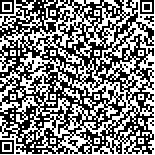| 引用本文: |
戚天臣,罗开民,侯洁,王东利,寇军威.辨证取穴温针灸联合揿针治疗肝肾亏虚型膝骨关节炎的临床研究[J].湖南中医药大学学报,2023,43(9):1693-1698[点击复制] |
|
| |
|
|
| 本文已被:浏览 2570次 下载 1410次 |
| 辨证取穴温针灸联合揿针治疗肝肾亏虚型膝骨关节炎的临床研究 |
| 戚天臣,罗开民,侯洁,王东利,寇军威 |
| (河北省唐山市第二医院, 河北 唐山 063000) |
| 摘要: |
| 目的 观察辨证取穴温针灸联合揿针治疗肝肾亏虚型膝骨关节炎(knee osteoarthritis, KOA)的临床疗效。方法 将来自河北省唐山市第二医院的80例肝肾亏虚型KOA患者随机分为观察组和对照组,每组40例。对照组采用局部取穴温针灸治疗,观察组在对照组的基础上采用血海、梁丘、肝俞、肾俞穴温针灸配合揿针,每周(周一、周四)治疗2次,共治疗8周。观察两组患者治疗前后的中医证候评分、KOA功能(Lequesne)指数评分、视觉疼痛评分(visual analogue scale, VAS)、日常生活能力评价(Barthel评分)变化,ELISA法检测血清Toll样受体4(toll-like receptor, 4, TLR4)、核因子κB(nuclear factor κB, NF-κB)、肿瘤坏死因子-α(tumor necrosis factor-α, TNF-α)、白细胞介素-1β(interleukin 1β, IL-1β)、总抗氧化能力(total antioxidant capacity, TAOC)、过氧化脂质(lipid peroxide, LPO)水平变化,并比较临床疗效。结果 (1)两组患者治疗后的各项中医证候评分均较治疗前下降(P<0.05),观察组治疗后的各项中医证候评分均较对照组下降(P<0.05)。(2)两组患者治疗后Lequesne指数评分均较治疗前下降(P<0.05),观察组治疗后Lequesne指数评分较对照组下降(P<0.05)。(3)两组患者治疗后的VAS评分均较治疗前下降(P<0.05),Barthel评分均较治疗前升高(P<0.05);观察组治疗后的VAS评分较对照组下降(P<0.05),Barthel评分较对照组升高(P<0.05)。(4)两组患者治疗后TLR4、NF-κB p65、TNF-α、IL-1β、TAOC、LPO水平均较治疗前下降(P<0.05),观察组治疗后上述指标均较对照组下降(P<0.05)。(5)对照组KOA患者临床总有效率为72.5%,观察组为85.0%,差异无统计学意义(P>0.05)。结论 辨证取穴温针灸配合揿针治疗肝肾亏虚型KOA患者能够显著改善临床症状,降低血清炎症因子和氧化应激指标水平,且优于局部取穴温针灸治疗。 |
| 关键词: 膝骨关节炎 肝肾亏虚型 温针灸 揿针 辨证取穴 膝骨关节炎功能指数 视觉疼痛评分 日常生活能力 |
| DOI:10.3969/j.issn.1674-070X.2023.09.021 |
| 投稿时间:2023-05-29 |
| 基金项目:河北省中医药管理局科研计划项目(2020430)。 |
|
| Clinical study on needle-warming moxibustion combined with thumbtack needle based on point selection by pattern identification in treating knee osteoarthritis of liver and kidney deficiency pattern |
| QI Tianchen,LUO Kaimin,HOU Jie,WANG Dongli,KOU Junwei |
| (The Second Hospital of Tangshan, Tangshan, Hebei 063000, China) |
| Abstract: |
| Objective To observe the clinical efficacy of needle-warming moxibustion combined with thumbtack needle based on point selection by pattern identification in treating liver and knee osteoarthritis (KOA) of liver and kidney deficiency pattern. Methods A total of 80 patients with KOA of liver and kidney deficiency pattern from the Second Hospital of Tangshan in Hebei province were randomly divided into observation group and control group, with 40 cases in each group. The control group was treated with needle-warming moxibustion by local point selection, while the observation group was treated with needle-warming moxibustion at the acupoints of Xuehai (SP10), Liangqiu (ST34), Ganshu (BL18), and Shenshu (BL23) combined with thumbtack needle on the basis of the control group. Both groups were treated twice a week (Monday and Thursday) for a total of 8 weeks. The changes in Chinese medicine pattern score, knee osteoarthritis function index (Lequesne) score, visual analogue scale (VAS), and daily living ability evaluation score (Barthel score) before and after treatment were observed in both groups. The level changes of serum toll-like receptor 4 (TLR4), nuclear factors κB (NF-κB), tumor necrosis factor-α (factor-α), interleukin 1β (IL-1β), total antioxidant capacity (TAOC) , and lipid peroxidation (LPO) were checked by ELISA, and clinical efficacy was compared. Results (1) The Chinese medicine pattern scores of both groups decreased after treatment compared with those before treatment (P<0.05), and the score of the observation group was lower than that of the control group (P<0.05). (2) The Lequesne index scores of both groups decreased after treatment compared with those before treatment (P<0.05), and the score of the observation group was lower than that of the control group (P<0.05). (3) The VAS scores of the two groups decreased after treatment compared with those before treatment (P<0.05), while the Barthel scores were higher than those before treatment (P<0.05). After treatment, the VAS score of the observation group was lower than that of the control group (P<0.05), but the Barthel score was higher than that of the control group (P<0.05). (4) The levels of TLR4, NF-κB p65, TNF-α, IL-1β, TAOC, and LPO in the two groups decreased after treatment compared with those before treatment (P<0.05), and the above indicators in the observation group were lower than those in the control group after treatment (P<0.05). (5) The total clinical effective rate of KOA patients was 72.50% in the control group and 85.00% in the observation group, with no statistically significant difference between the two groups (P>0.05). Conclusion When treating patients with KOA of liver and kidney yin deficiency pattern, needle-warming moxibustion combined with thumbtack needle based on point selection by pattern identification can significantly improve the clinical symptoms, reduce the levels of serum inflammatory factors and oxidative stress indexes, which is superior to needle-warming moxibustion by local point selection. |
| Key words: knee osteoarthritis liver and kidney deficiency pattern needle-warming moxibustion thumbtack needle point selection by pattern identification knee osteoarthritis function index visual analogue scale daily living ability |
|

二维码(扫一下试试看!) |
|
|
|
|




